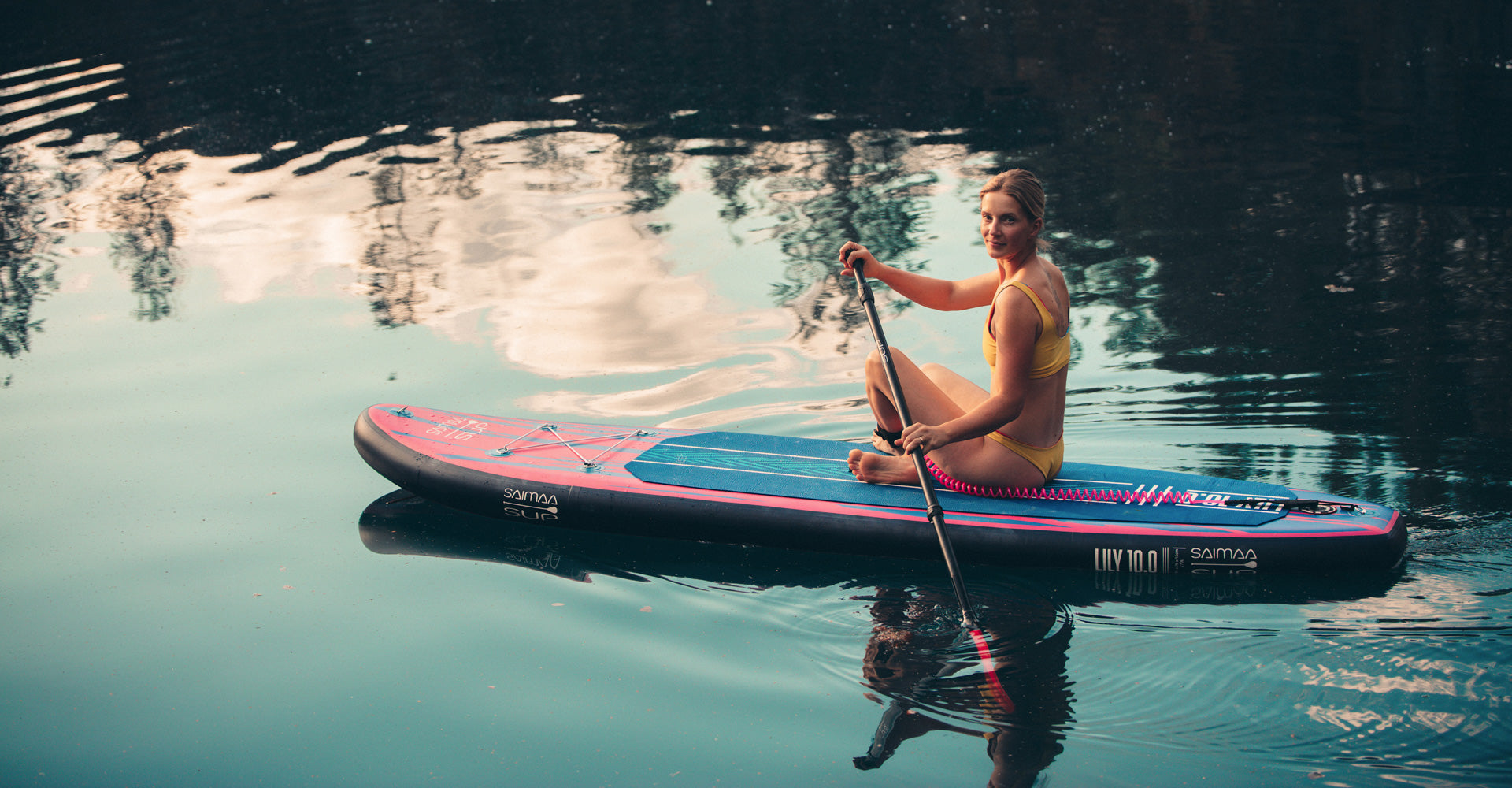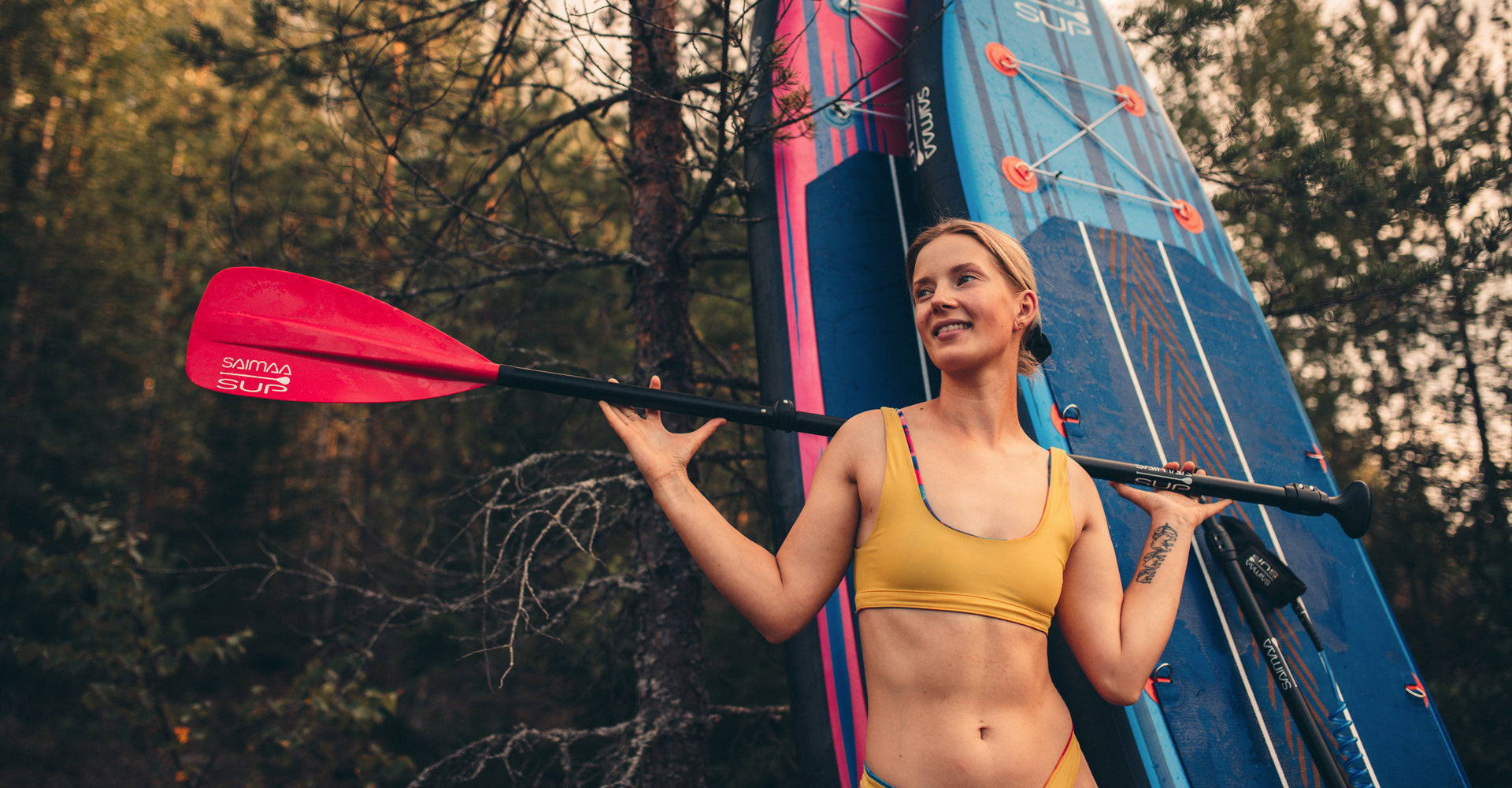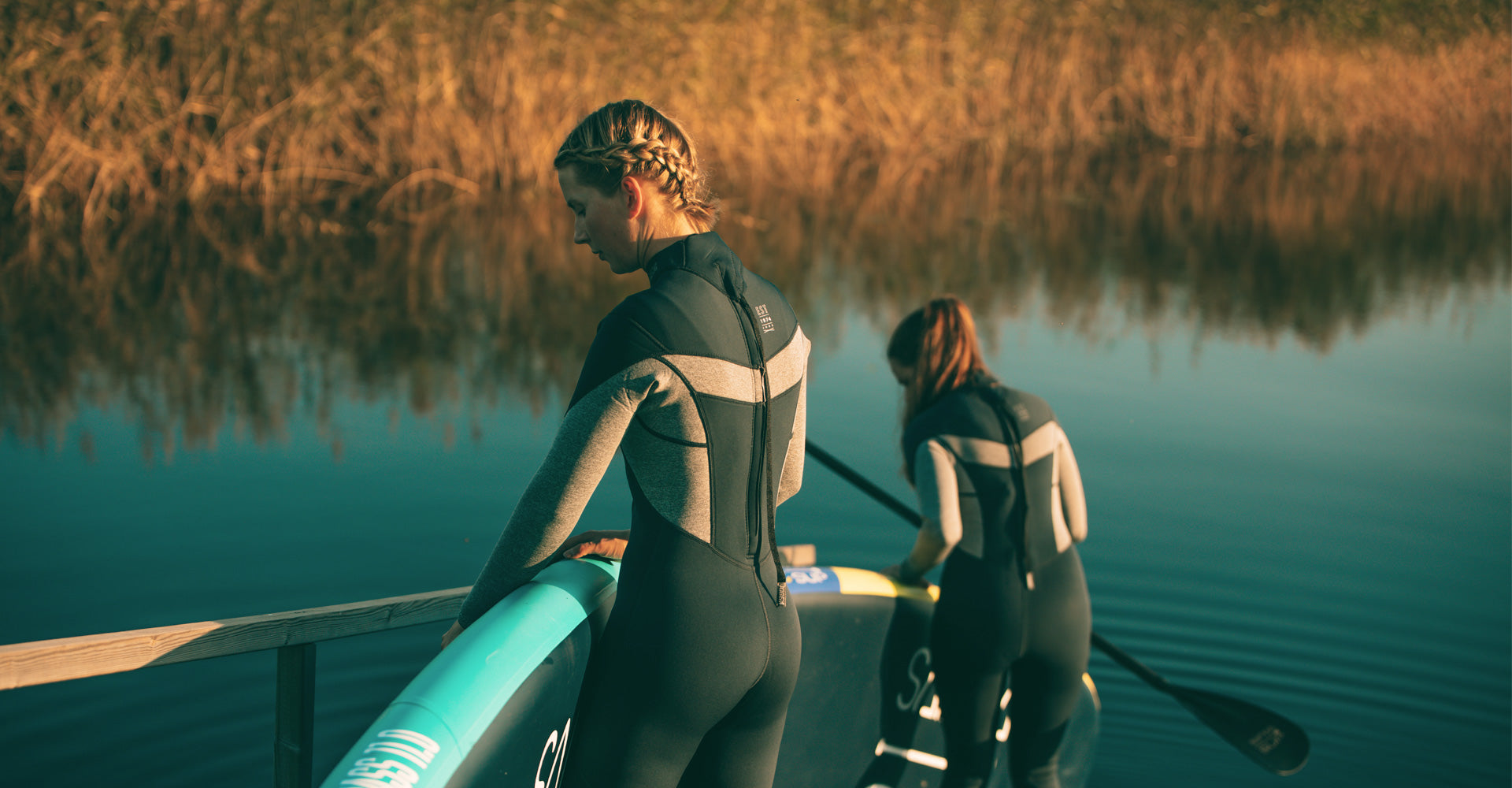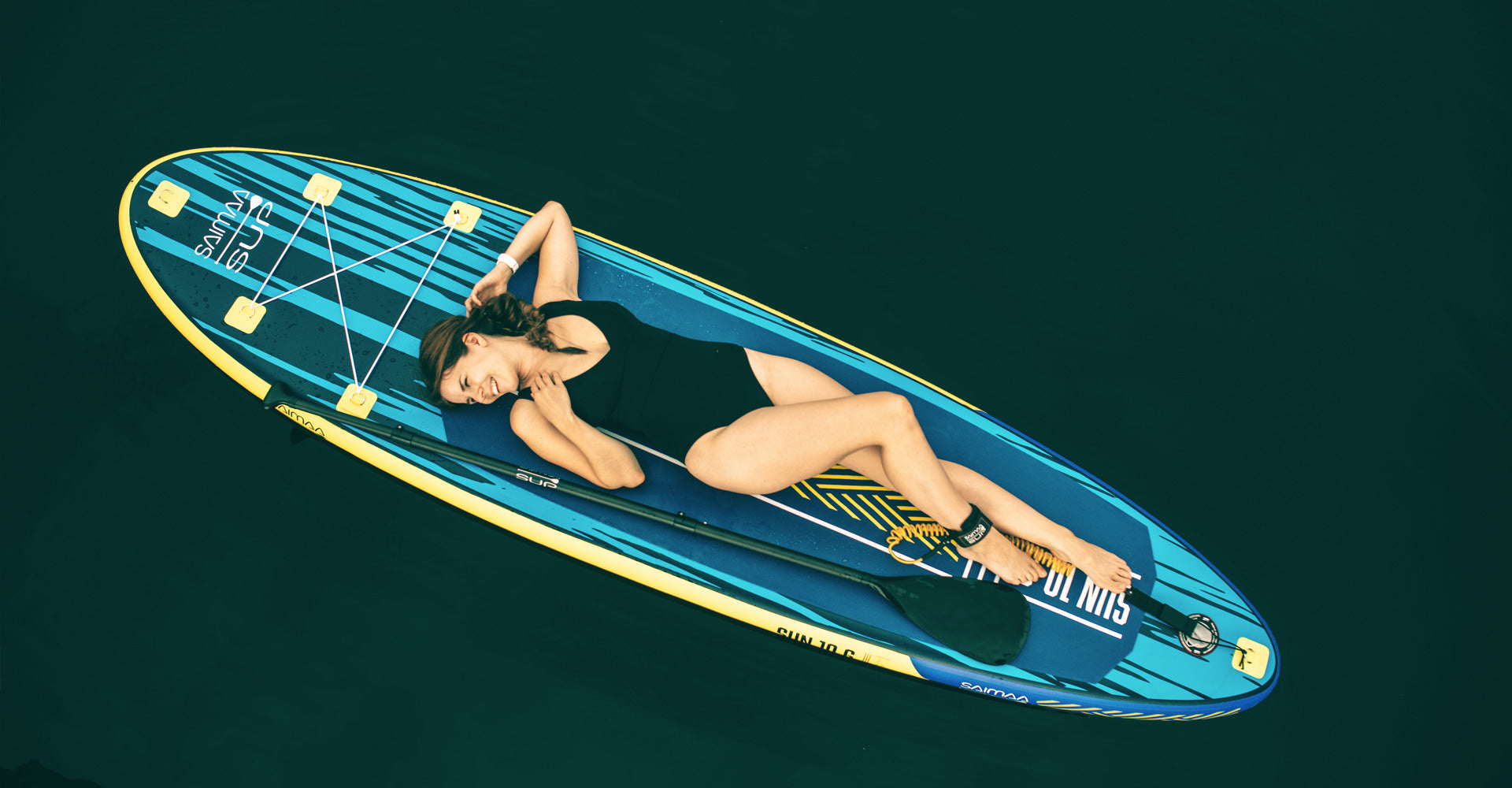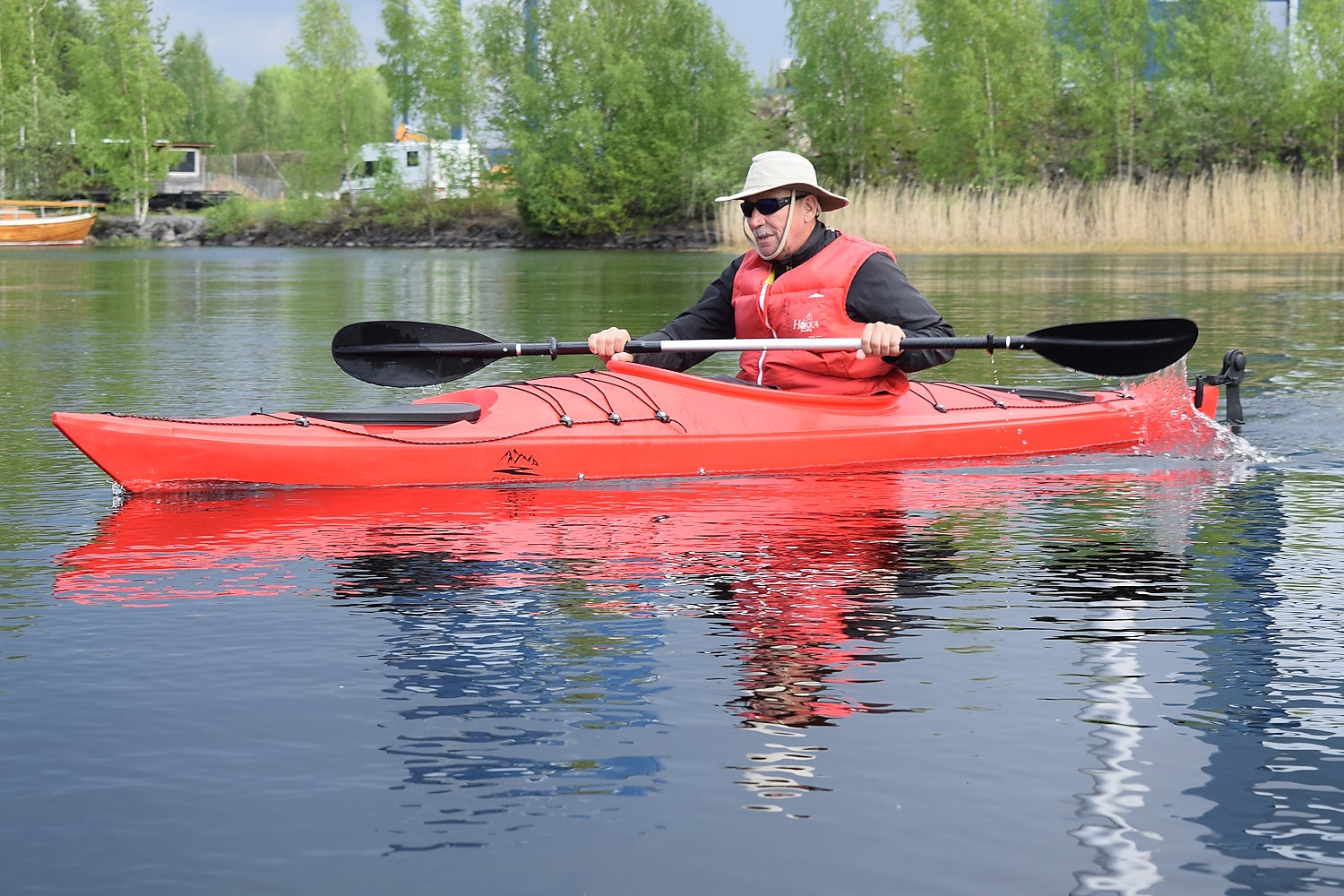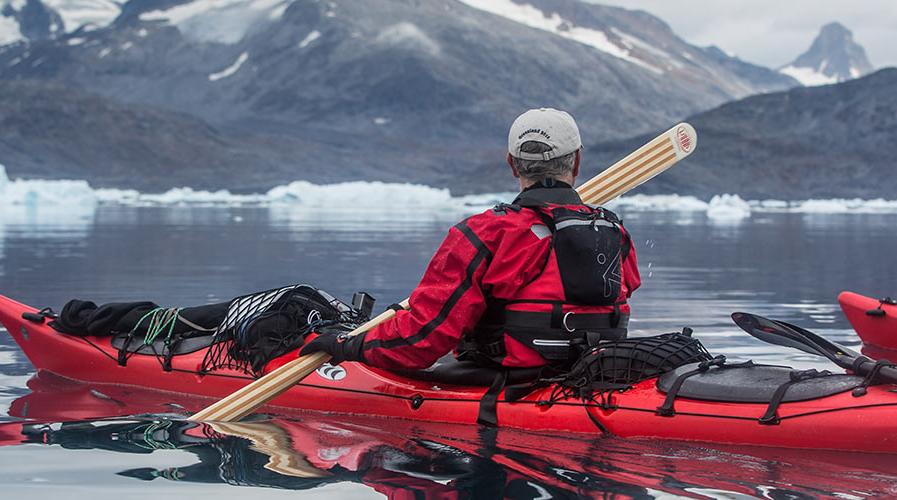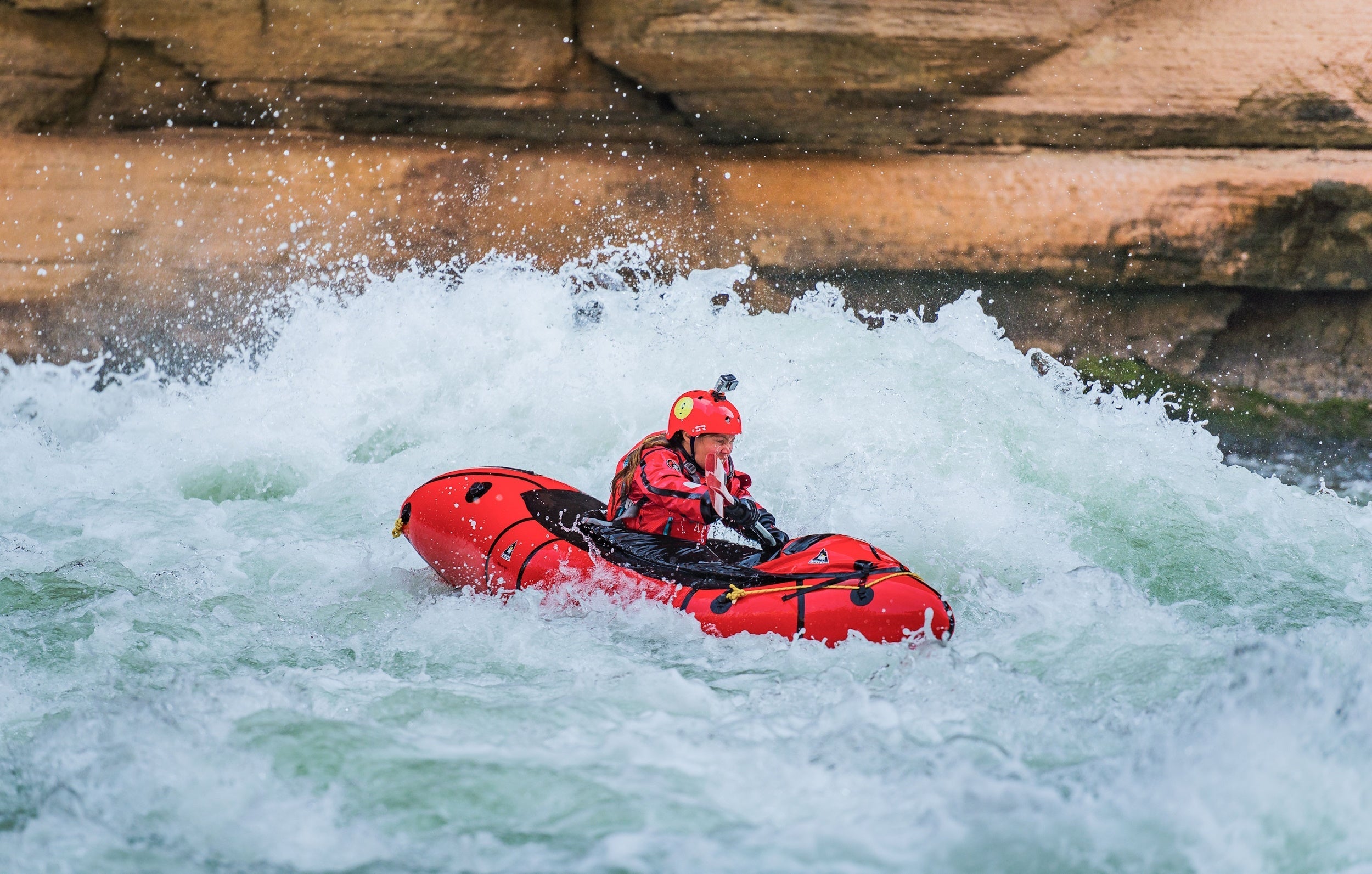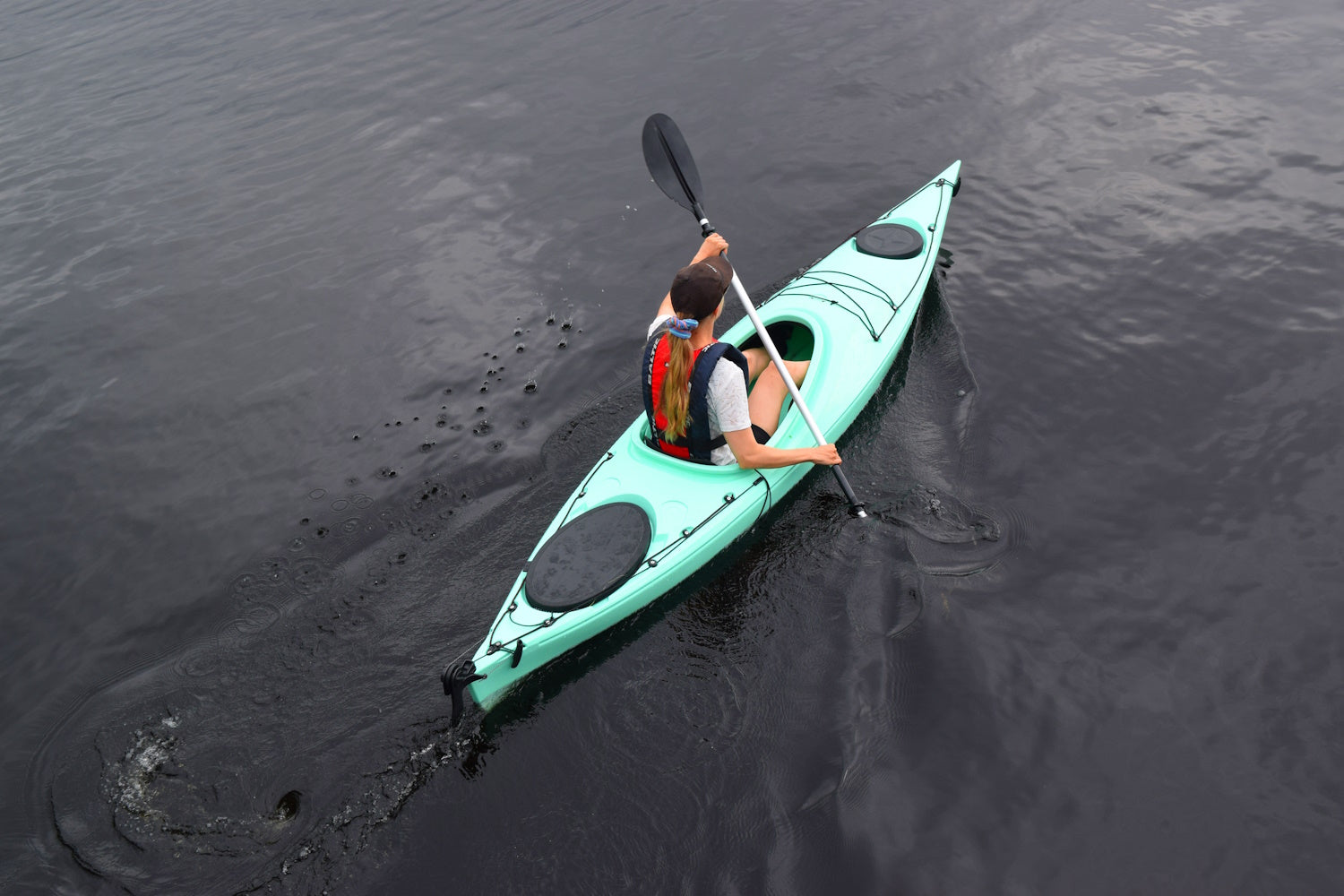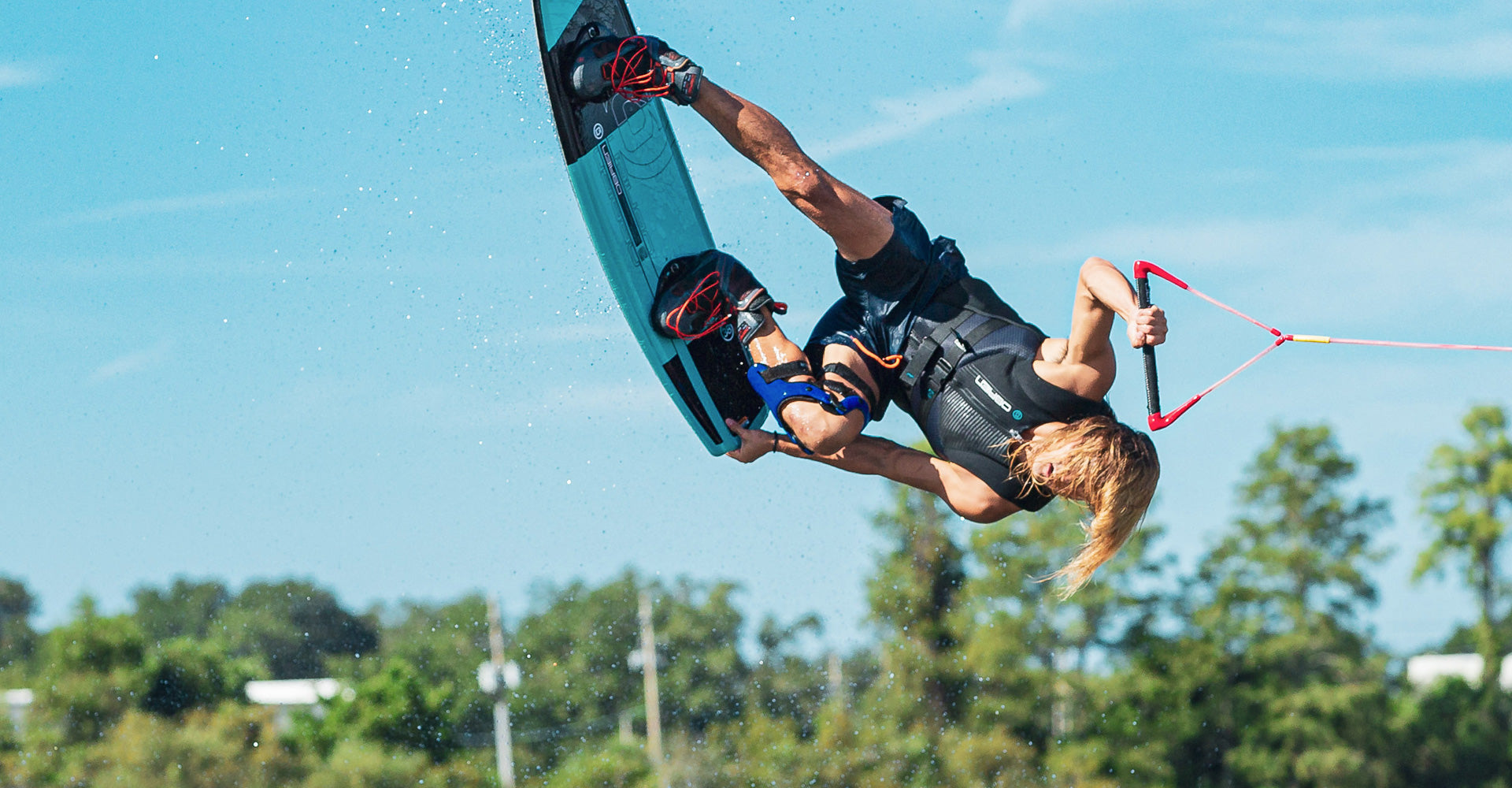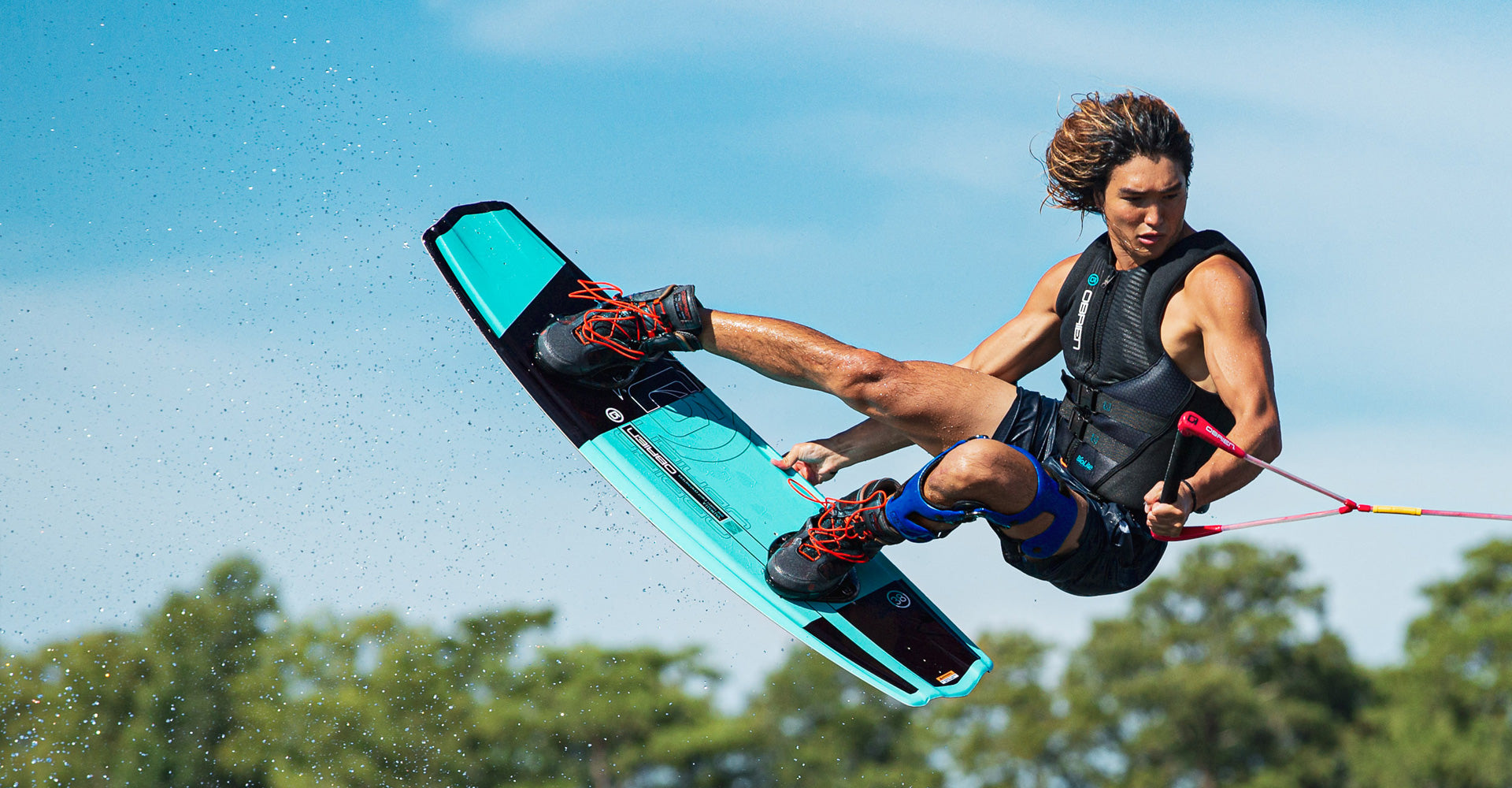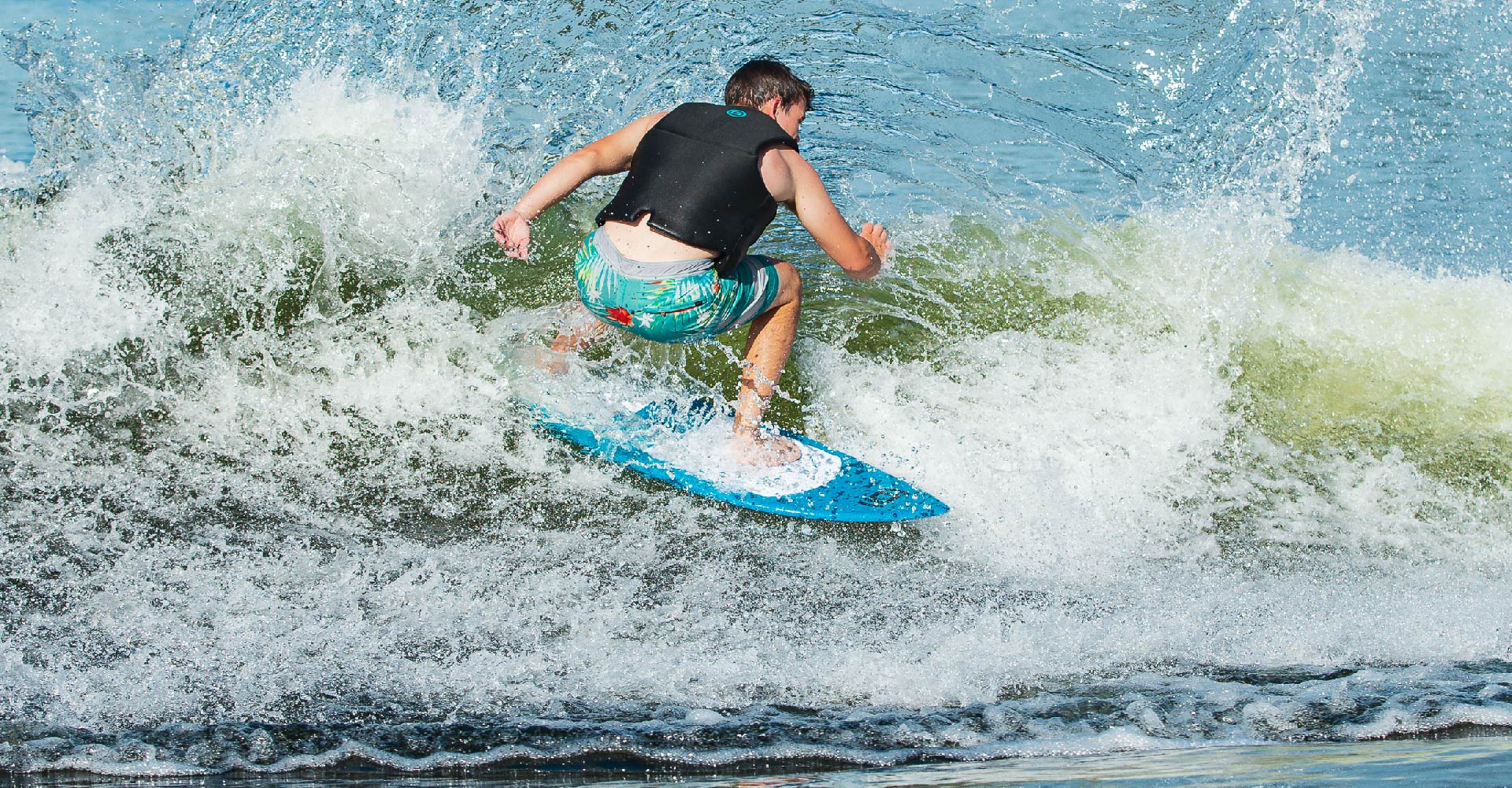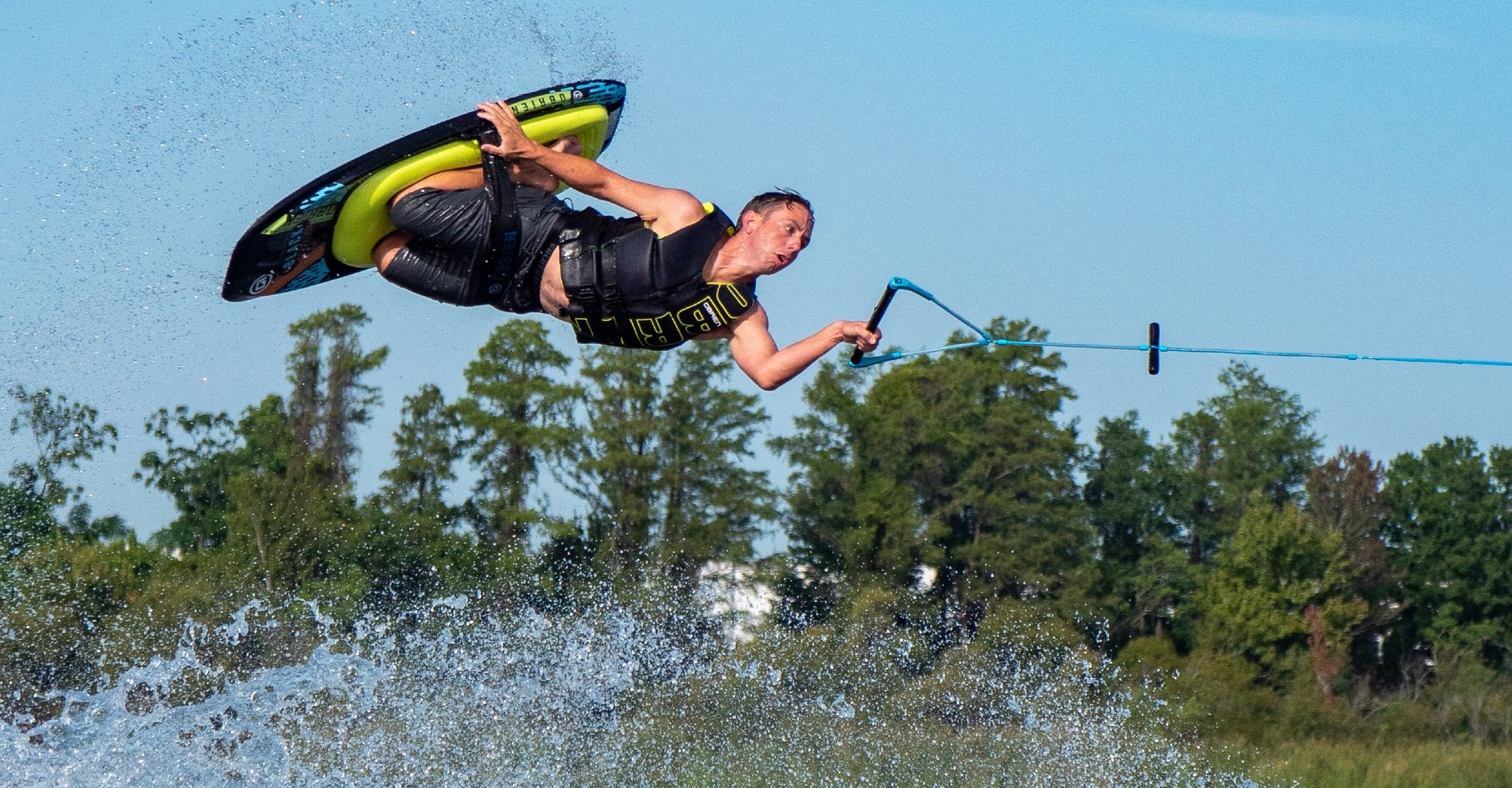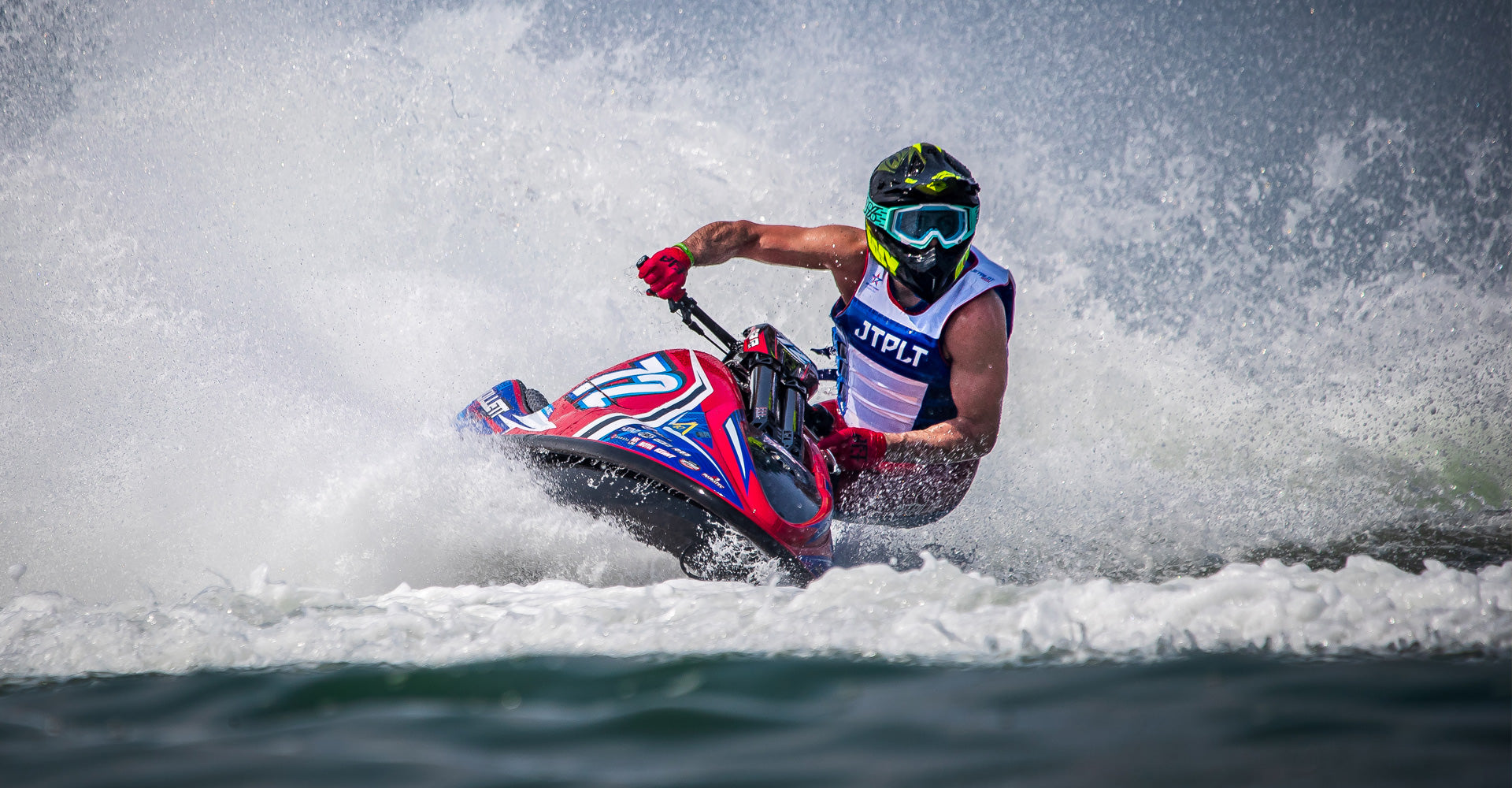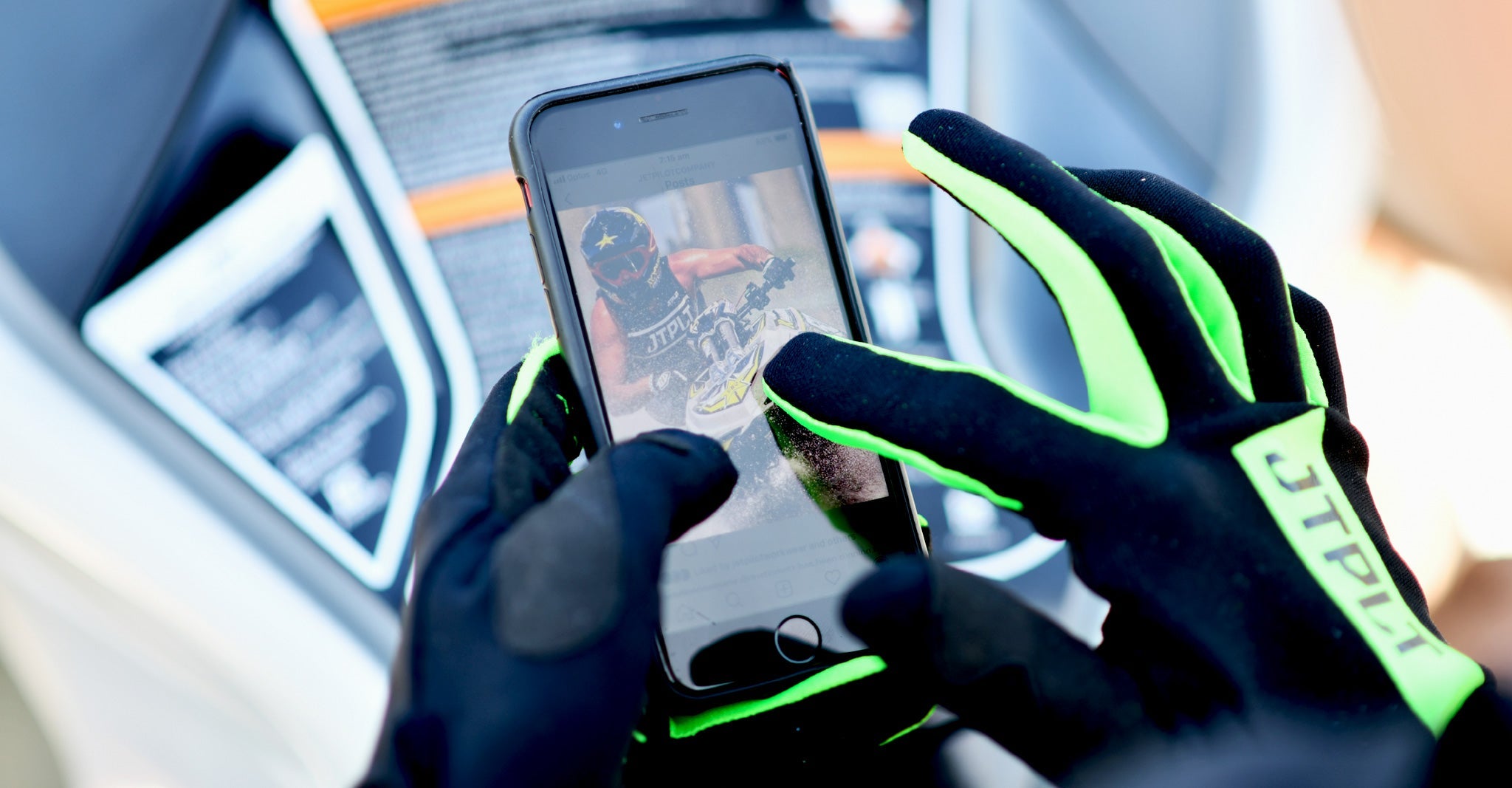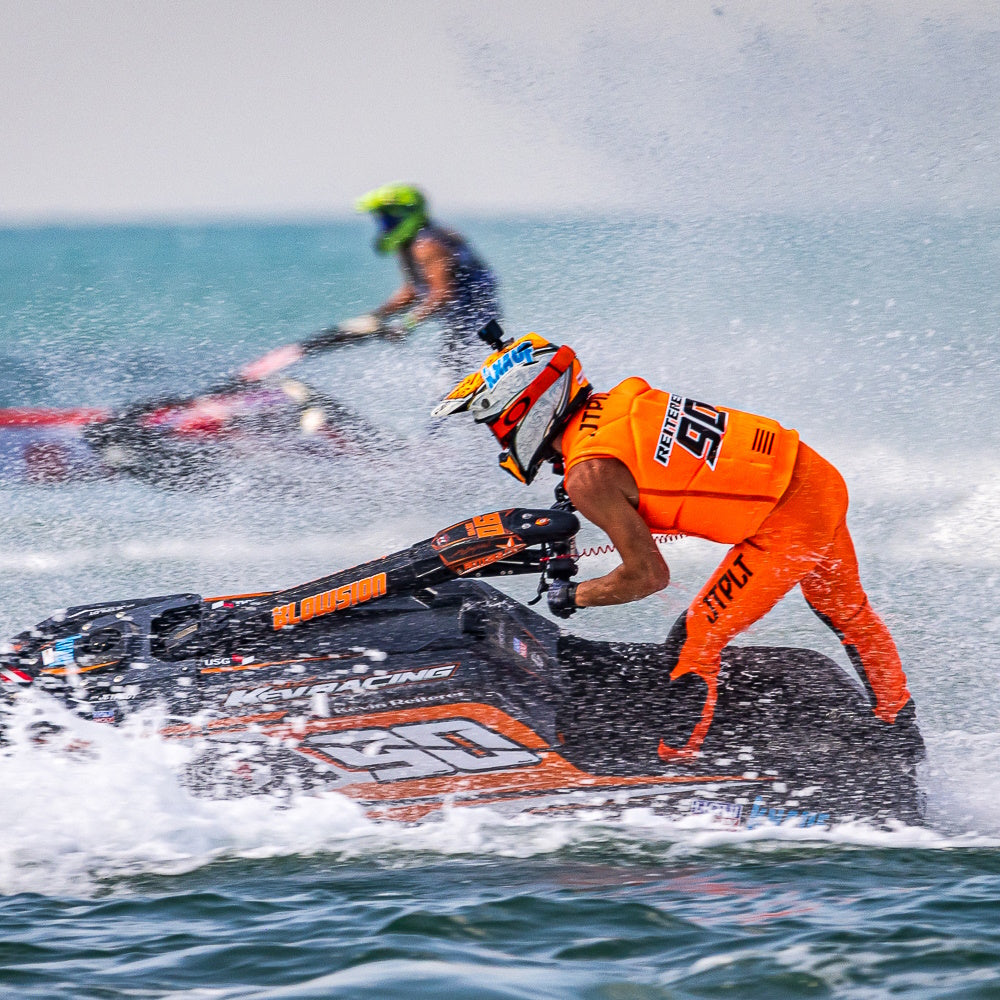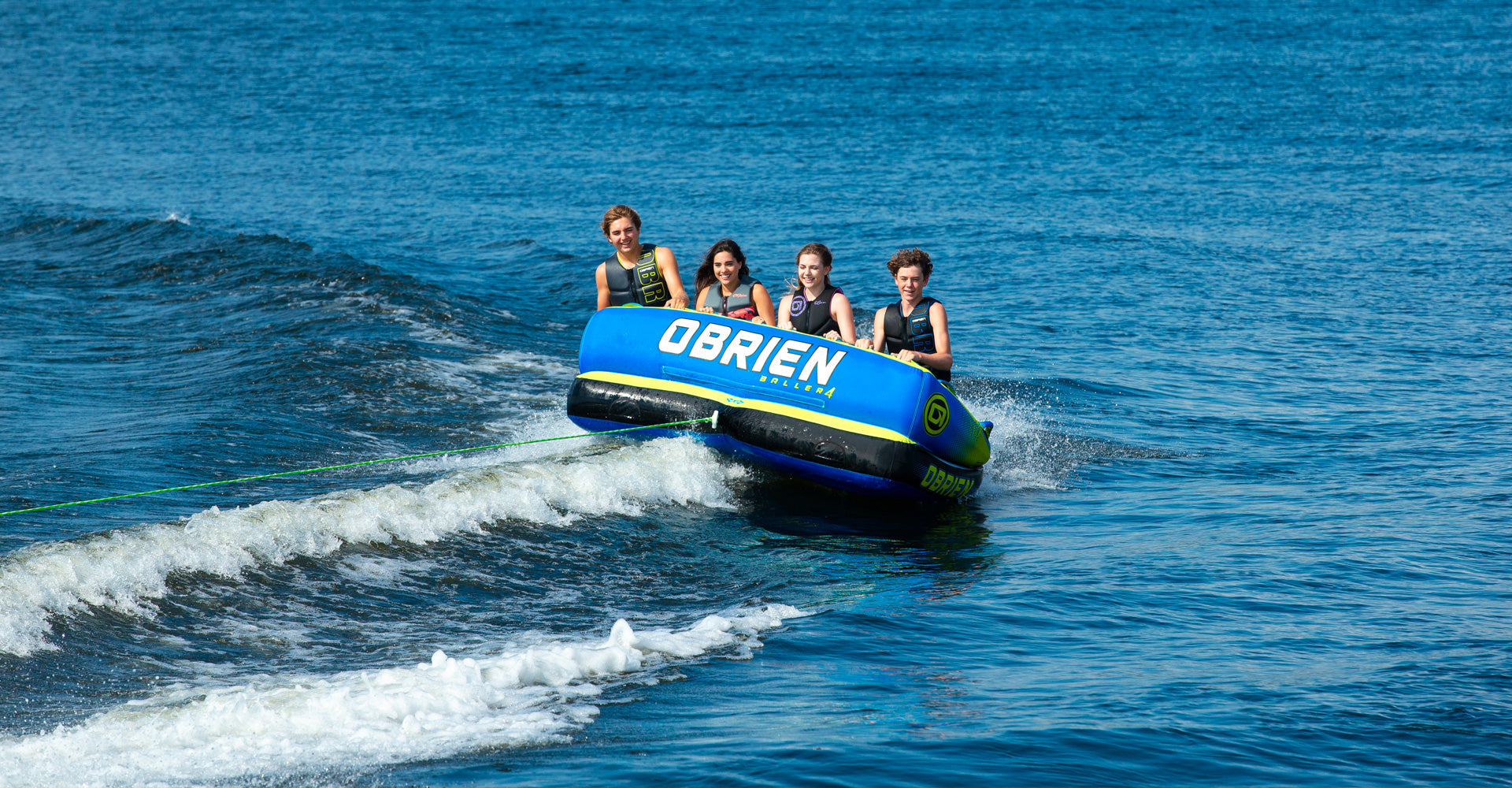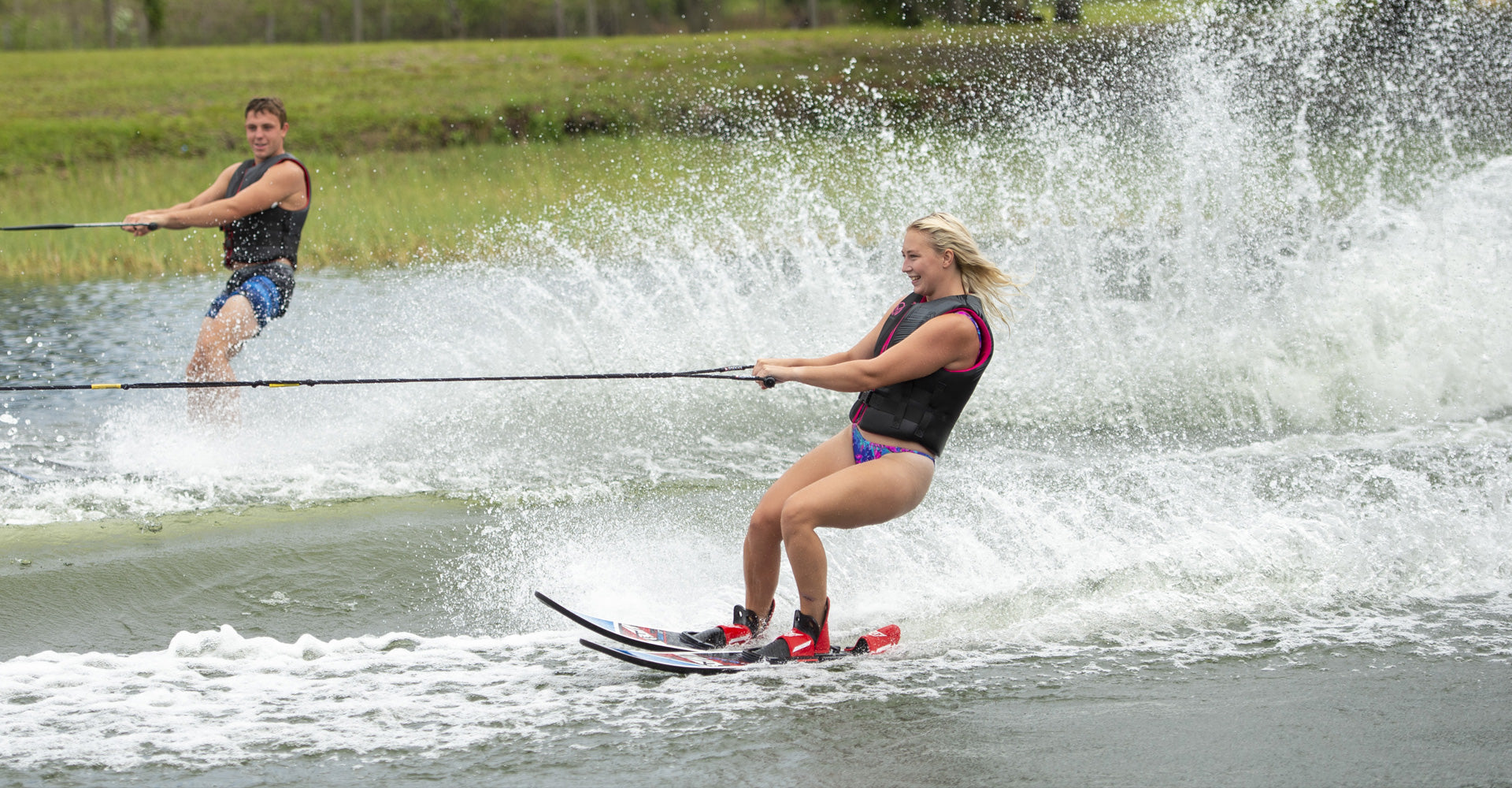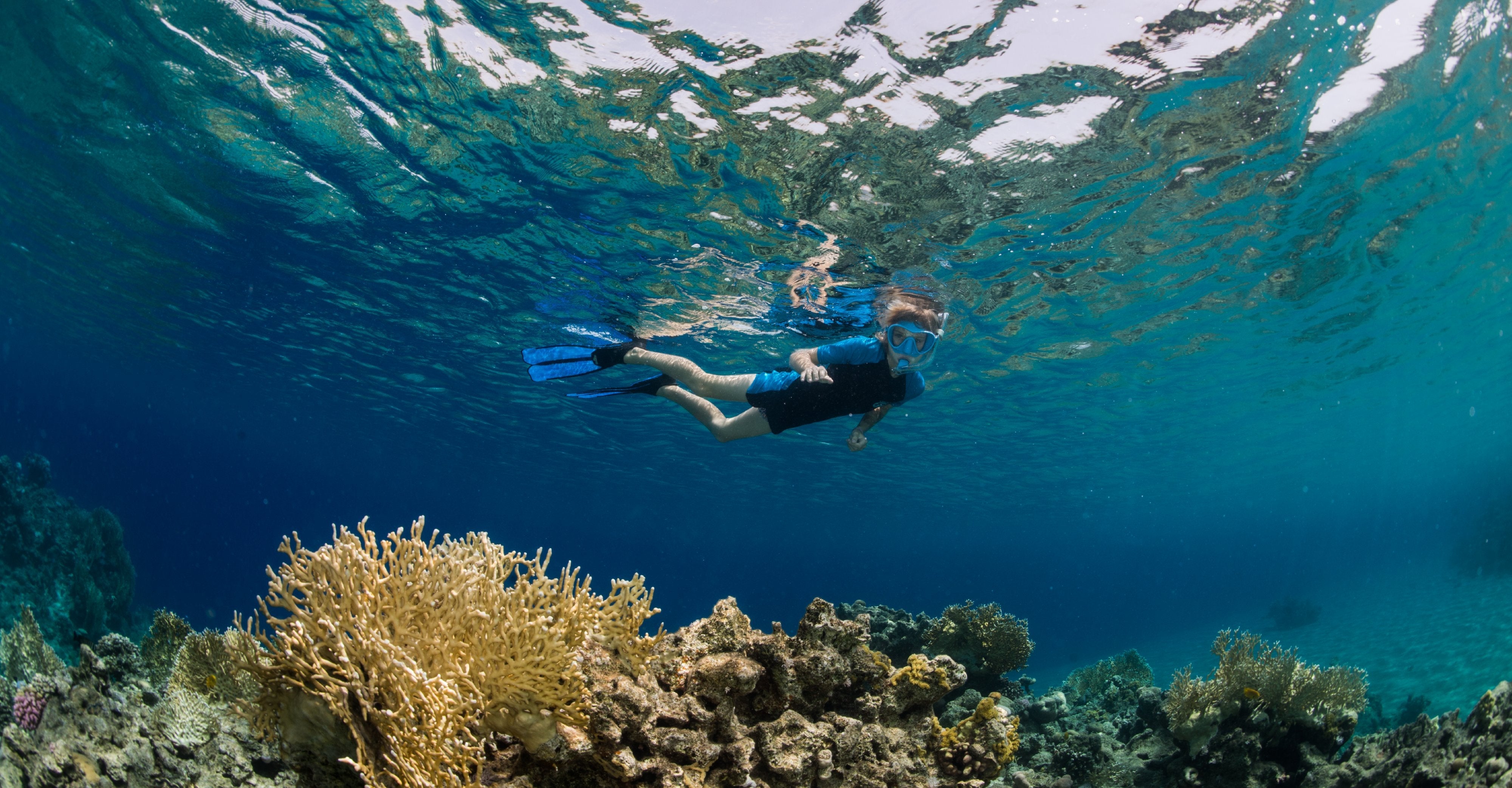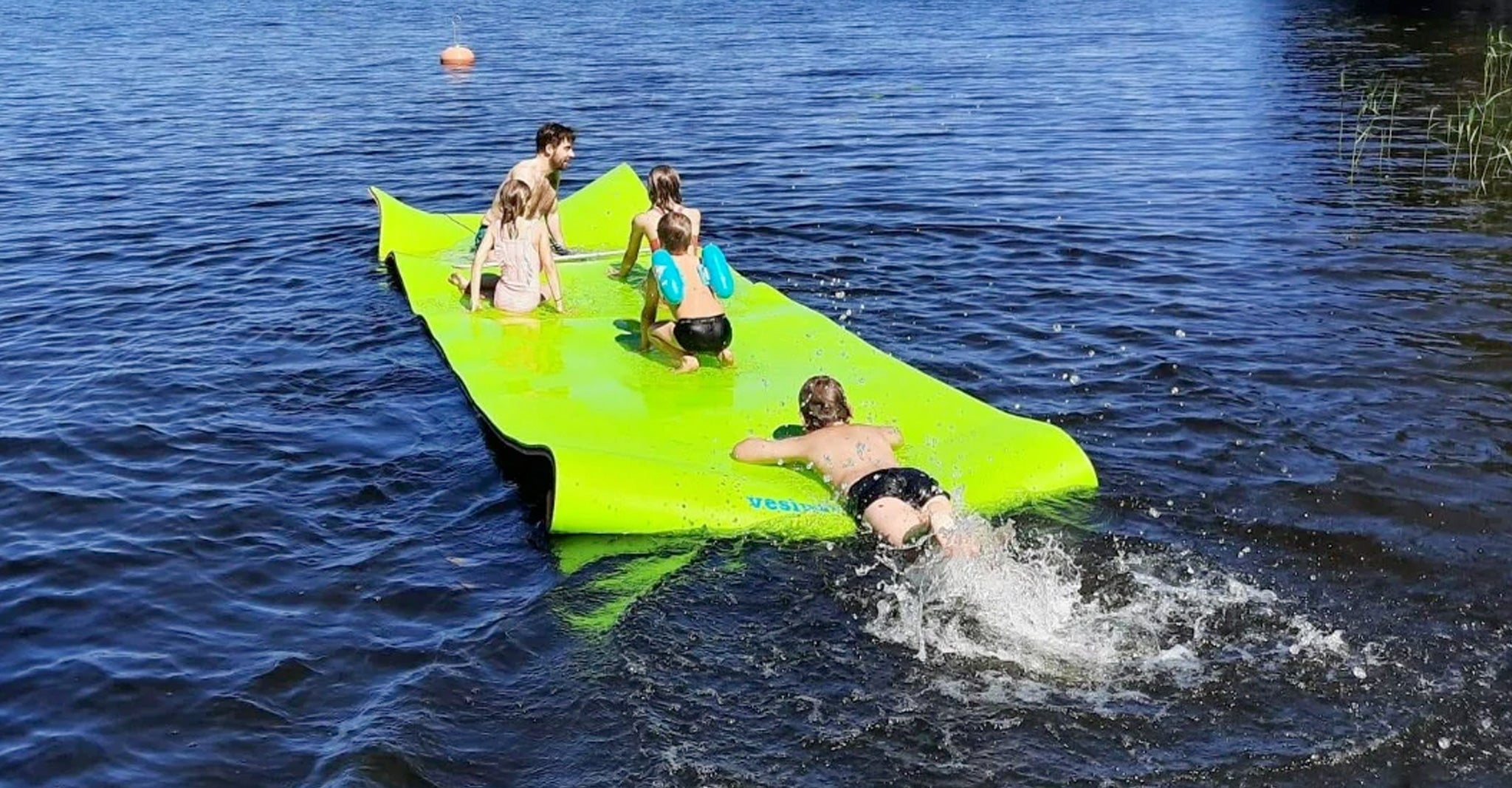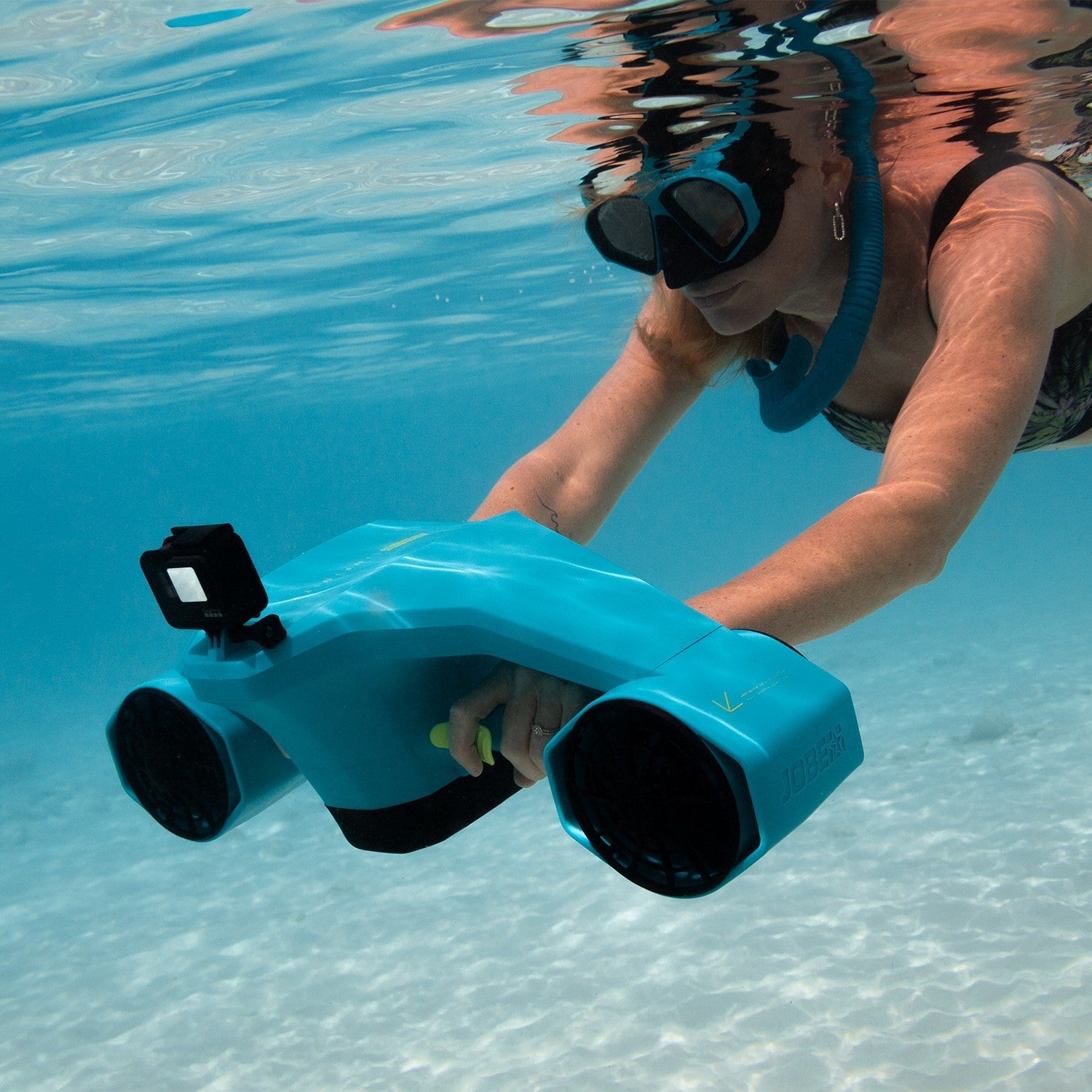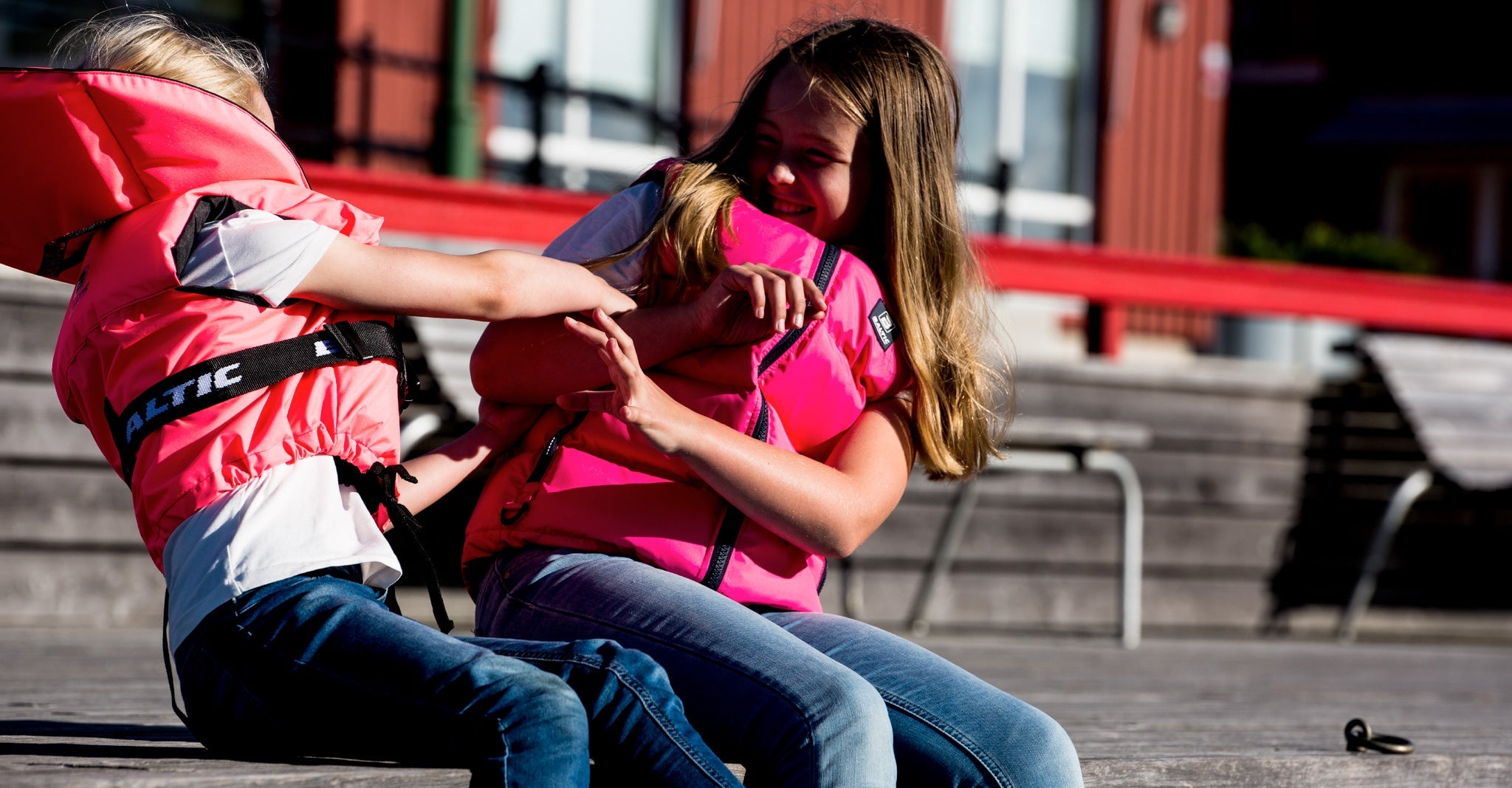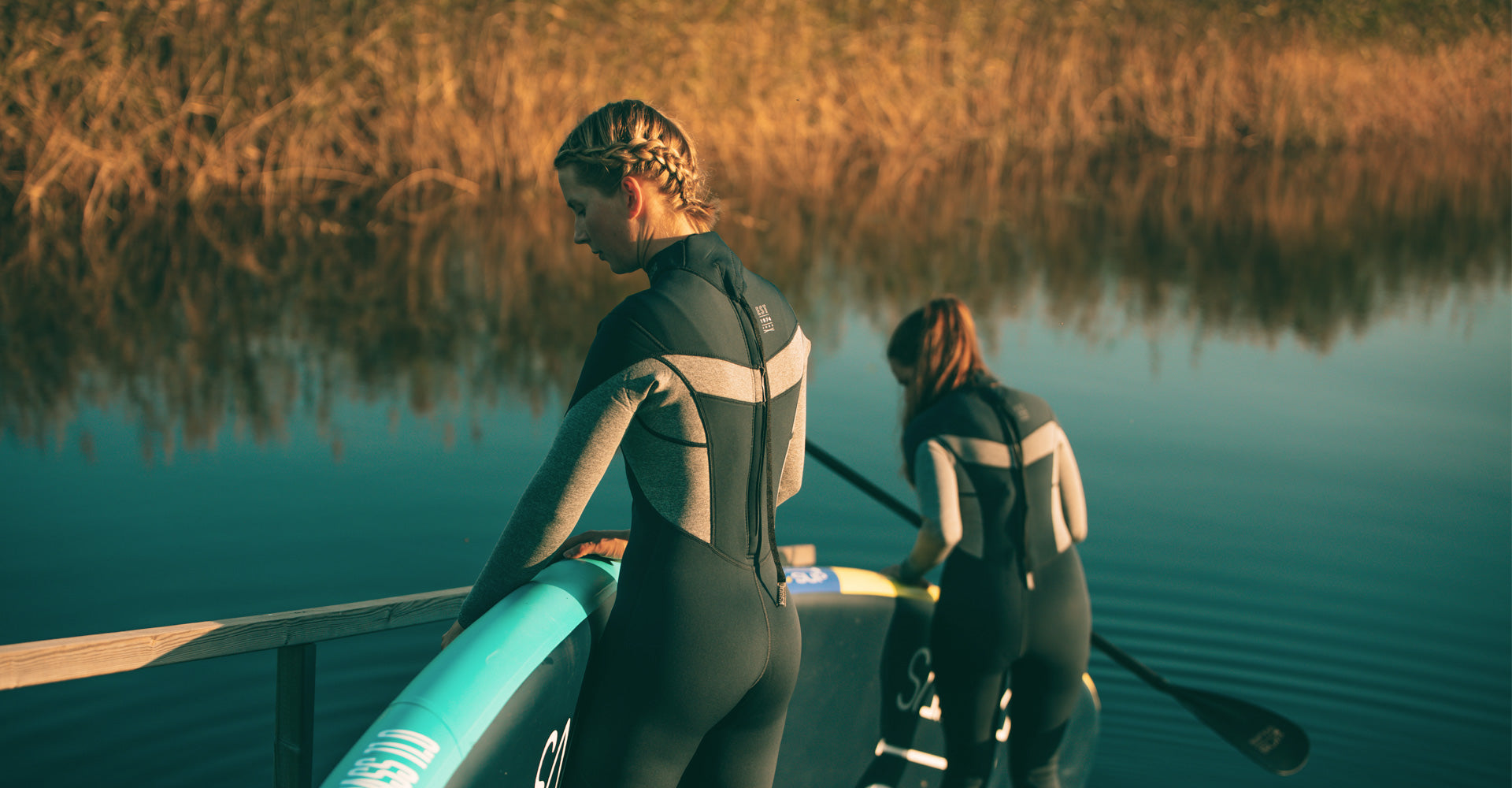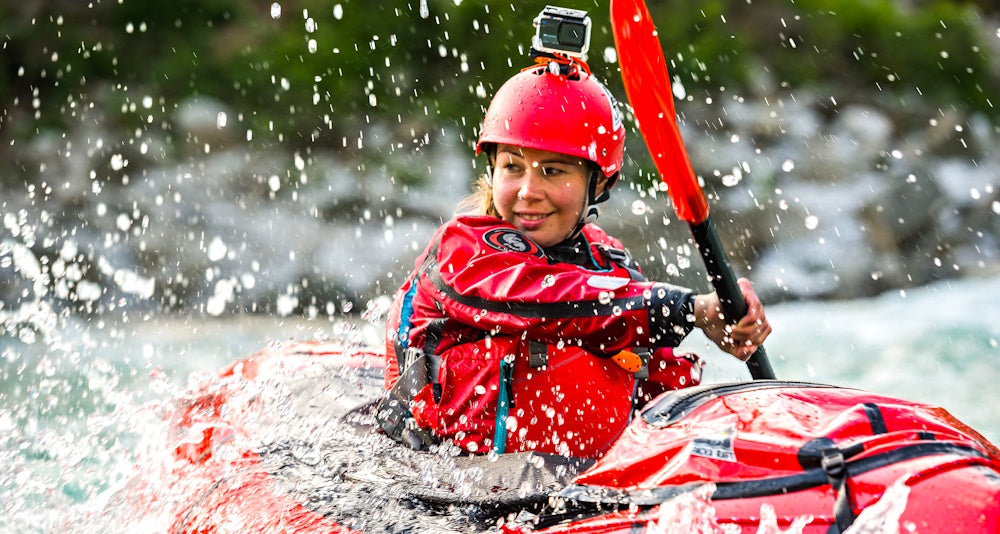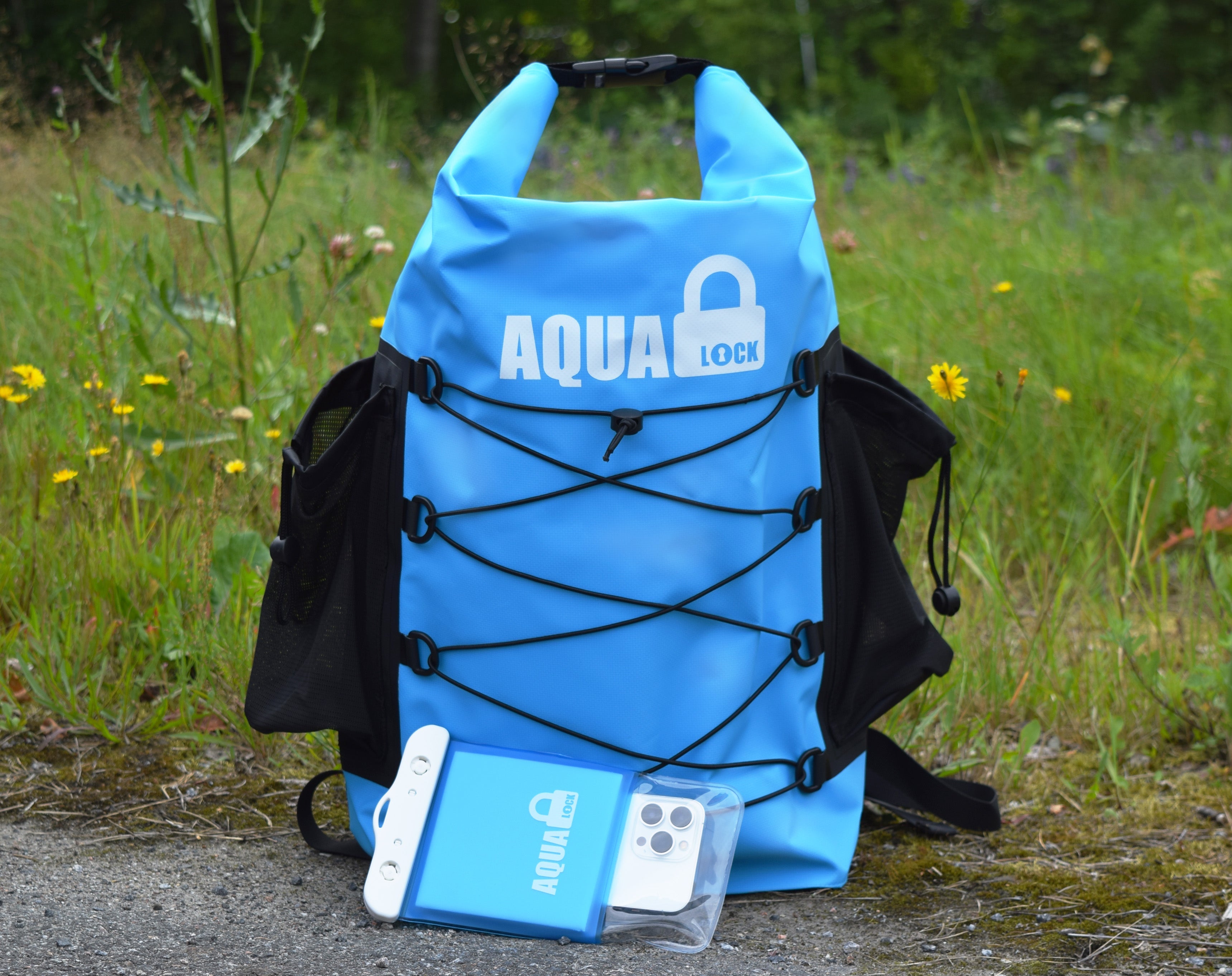how to choose the right wetsuit?
Why You Need a Wetsuit – Even in the Nordic Summer
Wetsuits are essential for anyone who spends time on the water — but you don’t have to be a professional diver to benefit from one. In the Nordic countries, warm water and long summers are short-lived. A neoprene wetsuit helps you extend your season, letting you get on the water earlier in spring and stay out longer into autumn.
Wetsuits are perfect for SUP boarding, snorkelling, swimming, finswimming, water-skiing, wakeboarding, and towable tube rides. The key is fit — a wetsuit should feel snug, not loose. That’s because neoprene works by trapping a thin layer of water between your body and the suit. Your body heat quickly warms this water, creating an insulating layer that keeps you warm even in cold conditions.
As a general rule, a 3/2 mm neoprene wetsuit can make cold water feel roughly 10 °C warmer. For example, if the water temperature is 10 °C, it may feel closer to 20 °C when you’re wearing a wetsuit. This isn’t a scientific measurement but rather a practical observation — individual comfort always varies.


JET PILOT WETSUITS
How to Choose the Right Size Jetpilot Wetsuit
When buying a Jetpilot wetsuit for water jets or other water sports, there are four key measurements that determine the right fit. In this guide, I’ll walk you through each one using my own body as an example.
1. Height
Your height (175 cm) is the most straightforward measurement — simply note it down.
2. Shoulder Width
Measure shoulder width (52 cm) by placing a tape measure from one shoulder joint to the other, across the back of your neck. This is one of the most important dimensions, as a wetsuit that’s too tight across the shoulders will restrict movement and even make breathing harder.
3. Chest Circumference
Measure your chest (106 cm) under the armpits, around the widest part of your chest. Keep the tape measure straight and slightly loose — you want the wetsuit to fit snugly but comfortably, not squeeze you too tightly.
4. Waist Circumference
Finally, measure your waist (81 cm) at the narrowest point, around the navel — not at the hips or ribs.
Comparing Your Measurements to the Jetpilot Size Chart
When I compared my own measurements to the Jetpilot wetsuit size chart, the best fit came out as size L, and after trying it on, the size chart proved accurate. On our website, we recommend choosing one size larger than you might normally wear — and from personal experience, I can confirm this is sound advice.
Australian size charts like Jetpilot’s can seem a bit unusual to Finnish customers: even with the average Finnish height, they often recommend an XL size (178–183 cm). However, a centimetre or two won’t make a big difference — and not all body proportions are the same.
Of all the measurements, shoulder width is the most critical. A slightly short suit only leaves the ankles exposed, but a tight shoulder fit limits flexibility and comfort. Fortunately, quality neoprene is highly flexible, especially when wet, and over time your wetsuit will naturally adjust to your body shape.
The Jetpilot wetsuit set includes both a diving suit and jacket, allowing you to layer up or down depending on water temperature and conditions — perfect for versatile use throughout the season.
FREQUENTLY ASKED QUESTIONS ABOUT WETSUITS
Nothing should be worn under a wetsuit apart from underwear, as the warming properties of a wetsuit are based on the close contact with the skin.
When wet, the neoprene material of the wetsuit absorbs a thin layer of water into its cells, which your body heat quickly warms to match your own temperature within seconds.
It is recommended that the wetsuit is as tight as possible within the limits of comfort, so that the neoprene works best
It depends on the suit, but the most common models are put on from the back with the help of a zipper
No, it doesn't. The principle of the wet suit is based on the wetting of the neoprene cells and the direct contact of this water layer and your skin, while the principle of the dry suit is to prevent wetting and direct skin contact with water.


